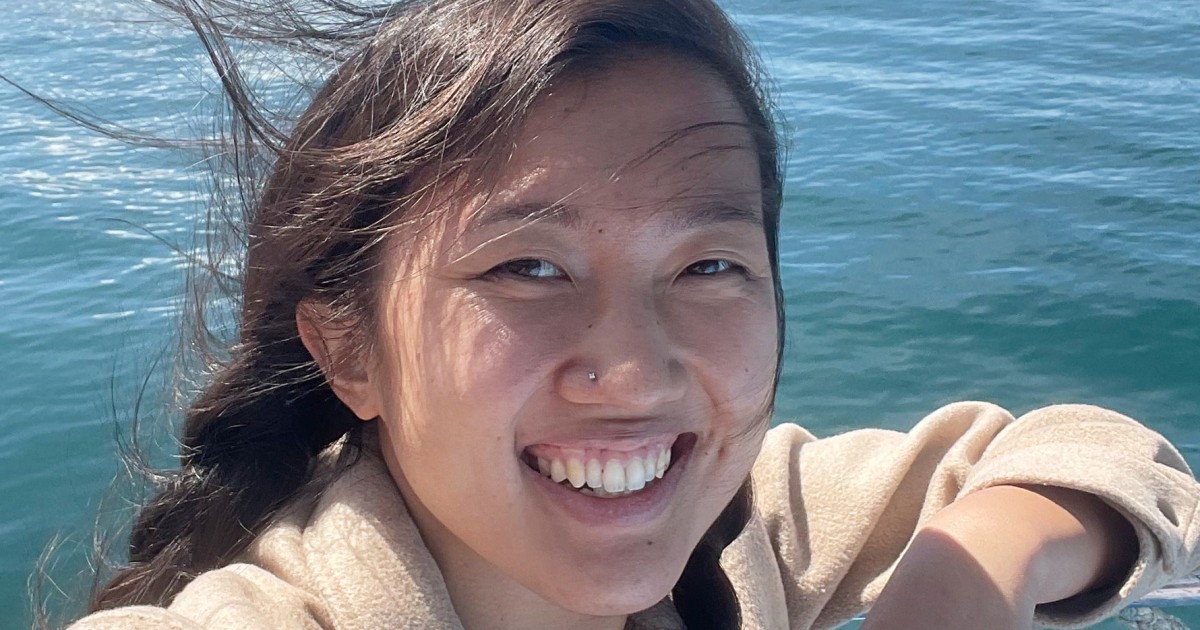“I don’t know how much my family can accept that statement if it’s not backed up or confirmed by authorities,” Nicky said. “Whatever she’s sharing with her attorney, I don’t believe it’s something that’s under oath. And it’s maybe even his interpretation of what she told him.
She added: “At the end of the day, what we want is more information so that we can direct our search team.”
She went off on a kayaking excursion in Lake Atitlan. Gardner told KABC that Blazek, who also attended the retreat, “happened upon” Nancy kayaking on the lake and attempted to warn her that the conditions weren’t safe for swimming. In Blazek’s account, Gardner said, Nancy ignored the warnings, got in the water and pushed her kayak away from herself in the process. Blazek then said she attempted to help retrieve Nancy’s kayak and it was in those moments that Nancy disappeared.
“[Blazek] kept one leg in her kayak and one leg in [Nancy’s] kayak and tried to get back to her ... and got close to her,” Gardner told KABC. “And then apparently, [Blazek] lost the kayak again and she turned around to go back to get the kayak again, and when she turned back around, Ms. Ng was gone.”
“I am not ready to speak publicly yet but I have been in clear communication with Nancy’s family and the authorities in Guatemala since the very beginning,” Rimada said. “The FBI conducted interviews to help bring closure to the Ng family that I was also completely forthcoming with.”
“Nancy’s a good swimmer. I don’t understand how this could have happened. Was she struggling for a long time? Did Christina hear her scream or yell for help?” Nicky said. “What was the scope? The circumstances? Did she just disappear? Was there a land nearby that she could have swam? I had no context or not enough context of what was going on. So those are the same questions we still have today.”
The family of Nancy Ng, who went missing in Guatemala last month, said they're "grateful" that the witness has spoken out, but they now have more questions than answers.

www.nbcnews.com
The victimization of the poor witness IMO is very disheartening.
I witnessed a car accident last week. Both cars totaled. Young woman clearly at fault for speeding in town and running a red light. It happened right next to me. I didn't stop, except for a moment, knowing that I'm terrible in emergencies and might create a whole 'nother accident. I called the relevant PD in the next 10 minutes, though, left a message, and the officer called me back when they were done clearing the scene. At no time was there any kind of "oath" involved. At no time did the young woman at fault or her family call me out, either privately or publicly, for witnessing what I witnessed. I had no need for expensive lawyer fees to protect me from bad press for witnessing what I witnessed. I didn't have the terror of un-familiars calling and emailing me, berating me for not doing enough, not doing the right thing, not providing information, not cooperating with authorities.... I had no one fingering me as a liar or believing they were entitled to my innermost thoughts and private reactions.
Was the young woman who caused the accident I witnessed an excellent driver? Maybe, but not right then. Maybe she's a way more accomplished driver than I am, with superior reflexes, better eyesight. But in the moment of the accident, trusting this skill may easily have worked against her, while I (and the gent who got hit) stalwartly hung out at the lights, lead-footed on the brake pedal, waiting for the green to signal it was safe. Because we respected red lights and the general wisdom about not running them.
I happened to be at someone's accident. That's all. The police officer thanked me for calling in what I witnessed. She said most people never do.
I will also never forget the accident I witnessed, the sudden crashing cacophony, the bewilderment of the guy who got hit, the car speeding in from nowhere, the dread someone might be dead when there was no movement from either car, my own adrenaline and a new realization that, though tempted, I am really really not good at emergency situations. The helplessness I felt about not being able to do anything.
I am a victim, too: I now have a fear of intersections where folks are zooming around, pushing the boundaries of what's do-able in the situation, and which have a history of accidents (as I can extrapolate the car debris I notice at the roadside). I am visited by nightmares, and jump at loud noises. This accident was visited on me: I was in no way the cause.
That's my story. It's just a few days old. It will never be gone from my mental horizon, however. That's on no one but the young woman who careened into the intersection. I was a corollary victim to her decisions.
There's my sense of the accident in Guatemala, though my experience of the event I witnessed is minute compared to the Lake Atitlán drowning. I am appalled over the mud-slinging at the victim, who is the witness in this case and did her best.


